#macedonian dynasty
Text
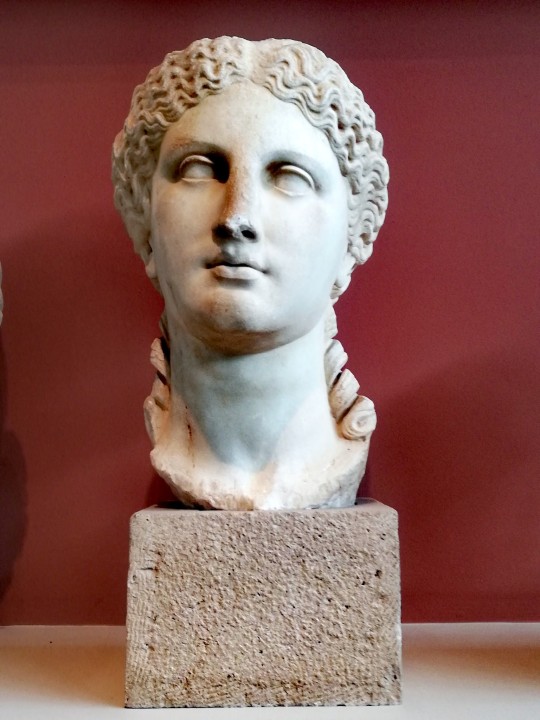
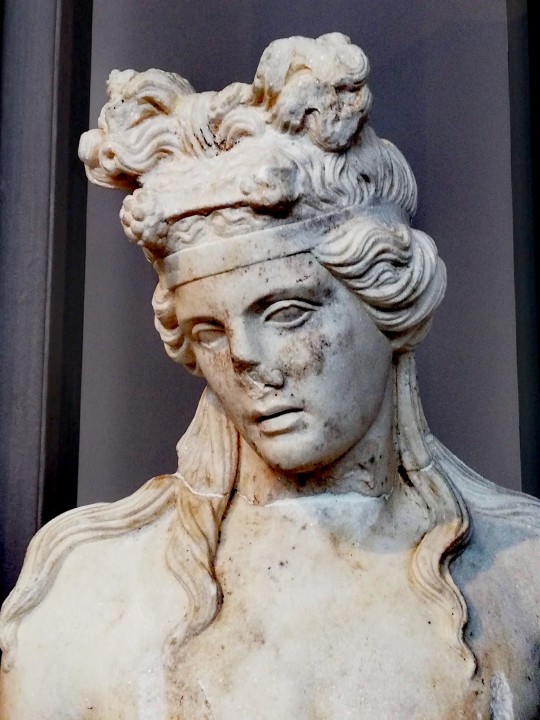
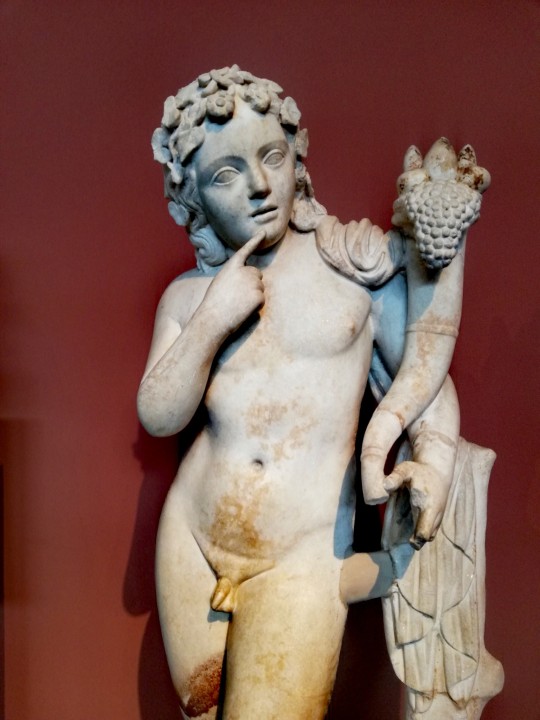


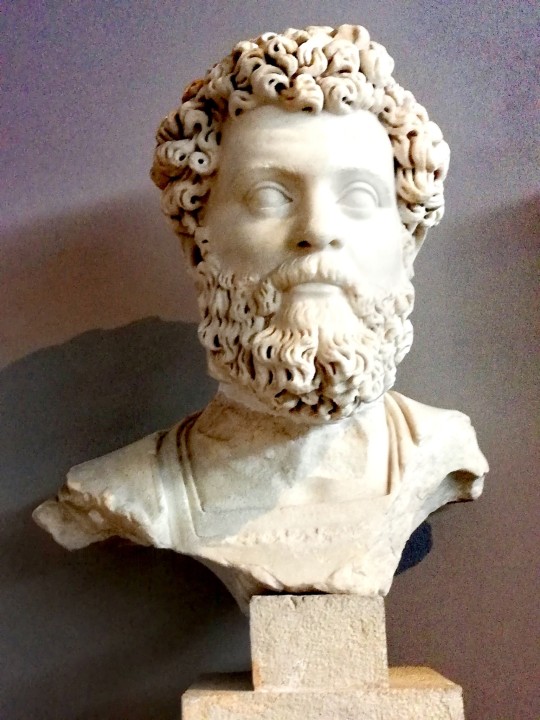

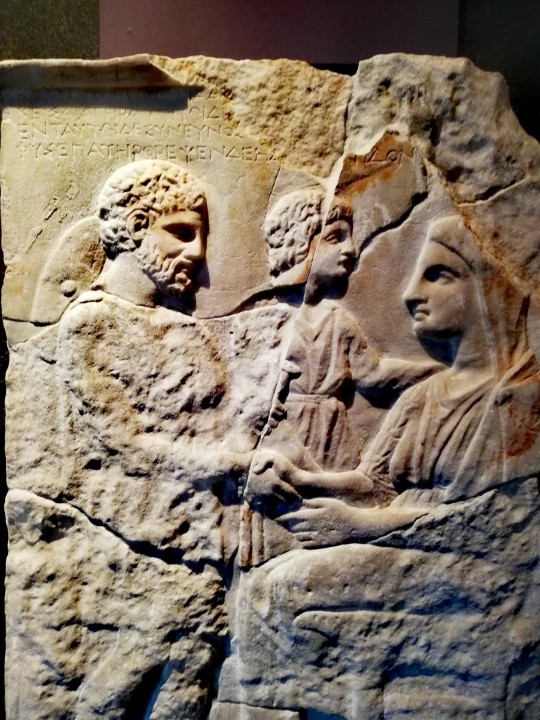
Archaeological Museum of Thessaloniki, May 2023
#mythology#art#greek gods#greek mythology#macedonian dynasty#macedonia#archaeology#archaelogical museum#ancient art#ancient greece#thessaloniki#hellenism#hellenic deities#museum#photography#statues#sculpture#roman art#beauty#portrait#dionysus#zeus#aphrodite
117 notes
·
View notes
Text
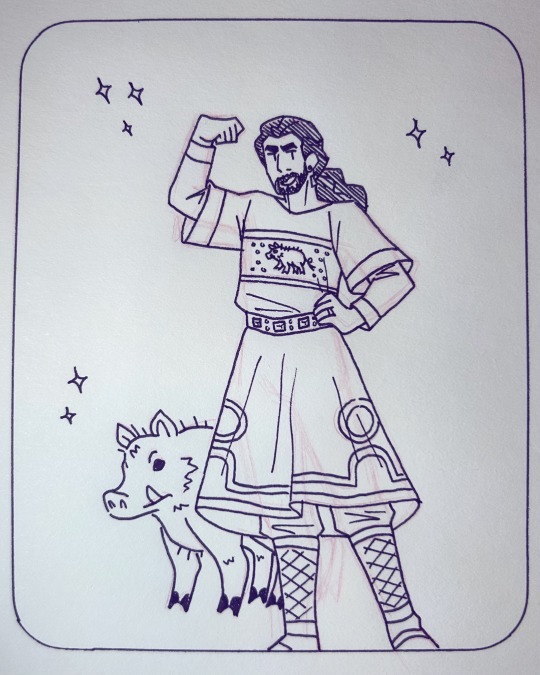
Day 3: Boar - Alexander (son of Basil I); I am hilarious for this
#jenstober23#alexander ii porphyrogenitos#alexander iii porphyrogenitos#byzantium#byzantine empire#byzantine emperor#history art#10th century#macedonian dynasty#inktober#inktober 2023#drawtober#drawtober 2023#artober#artober 2023#witchtober#witchtober 2023#traditional art#greek tag#roman tag#day 3
6 notes
·
View notes
Text


Prettiest lad in the empire
#byzantine empire#historical#history#artwork#artists on tumblr#digital art#character design#constantine the nobelissimus#constantine Paphlagon#11th century#Macedonian dynasty#my art
3 notes
·
View notes
Text
Wrapped up the last book on Roman history:
From the history of Rome I now move to the history of France, for a time, and wrap things up with Ira Lapidus's history of the Muslim world. This book, all 857 pages of it, covers the full sequence of the history of the Eastern Romans from the reign of Diocletian to that of Constantine XI. In the course of that 1153 years the Byzantine state first adopted Christianity, replaced the habit of civil wars with palace putsches, and underwent a history that like that of Kanem-Bornu defies the usual conventional wisdom of the histories of states and empires neatly fitting into a rise-maturity-fall triad. The Empire underwent several major catastrophes, but only 1204 and 1453 finally proved fatal, by which point it made it all the way to the age of the gunpowder empires introduced by the Ottoman Sultans and but four decades from the cataclysmic arrival of European colonialism in the Americas.
Virtually all of the cliches that define the various narratives of the downfall of the West do not apply to the Byzantine state. Christianity was the ideological framework of a powerful state that lasted over a millennium. Overmighty generals did orchestrate palace coups and from time to time civil wars and found new dynasties, but these same men were able to restore the Empire twice in crises even when their actions worsened them. Climate change, if it supposedly toppled the West had a vacuum-sealed bubble around the East that miraculously exempted the founding Emperors and generals of the Byzantine state from the decay that took the West, so presumably Eastern Orthodoxy allows for a nullification of climate via icons. /snerk
Ultimately it is one of the deeper ironies that in a very real sense the Roman Empire not only did not entirely fall, under Justinian I it underwent a resurgence that briefly re-established Roman rule on both ends of the Mediterranean, before the civil war of Phocas and Heraclius brought the empire to near-ruin first at the hands of the Sassanian Emperor Khosroes II and then the rise of the Rashidun and Ummayyad Caliphates. Even then it underwent a second resurgence from the reign of Irene to that of Basil II Bulgaroktonos (Bulgar-Slayer, most famous for the Battle of Kleidon where in the aftermath he blinded 99 out of 100 and left the other 10 with sight in one eye to lead them back to the Tsar, who died of shock at the sight).
The successes and the wealth from these conquests produced a drifting state that in turn disintegrated into the 1204 catastrophe of civil war mixed with the opportunistic forces of the Fourth Crusade....only to regenerate again when the Despotate of Nicaea overcame its first rival in Epirus, regained the capital, and tried to restore the realm with more success than might be expected until the heirs of Ghazi Osman began to build an empire that would ultimately revive, however briefly, the borders of the Diocletian-era empire.
These are truths that worked together with all the more familiar narratives of different facets of medieval times, the Byzantines outlasted the Arab states' periods of self-rule before the Seljuk and then Ottoman Sultans replaced Arab elites with Turkic, they outlasted the glory days of the Bulgarian Khanates and then Tsardom, of Stepan Dushan's Serbia, of Kyivan Rus and the Khazar Khaganate that preceded it, of the Carolingian Empire's own bid to rebuild a Western European super-state and the glory days of medieval German culture in the pan-European power games of the Ottonians and the Staufens.
And they even managed to match the Hundred Years' War, for that matter, as their empire expired about when the conventional ending of that war's held to be. To remember that, and to look at the history of what could be either medieval Rome or medieval Greek history with equal truth to those labels, is to reappraise the past in a way that matters not least for smacking around multiple narratives with a sledgehammer wielded by someone out of a drunken Jackass tryout.
9/10.
#lightdancer comments on history#book reviews#byzantine history#constantinian dynasty#theodosian dynasty#macedonian dynasty#komneni dynasty#angeloi dynasty#paleologoi dynasty
1 note
·
View note
Text

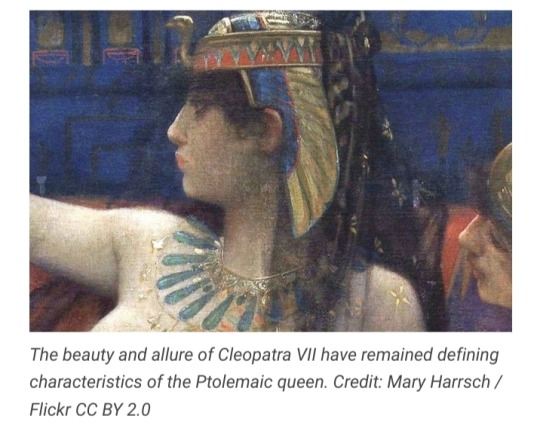
A significant part of Cleopatra VII Philopator’s enduring reputation is as one of history’s most famous femme fatales, renowned for her beauty and wit which attracted not one, but two of the Roman Republic’s most powerful men.
Whether or not this popular characterization of Cleopatra is historically accurate, her reputation has led many to wonder whether she had any particular beauty secrets that she used to ensure Julius Caesar and Mark Anthony.
The historical record does provide some clues as to how the Ptolemaic dynasty’s most famous ruler presented herself, from hairstyles to clothing, and even makeup.
Although we cannot be entirely certain how she presented herself, there are enough historical details to piece together a reasonable picture of how Cleopatra might have presented herself.
Was Cleopatra really a beauty?
As the old adage goes, “Beauty is in the eye of the beholder.”
As far as the ancient sources are concerned, the question of Cleopatra’s beauty raised mixed responses, with some ascribing an irresistible physical appearance to her and others attributing her allure more to her intellect and charm.
For example, Cassius Dio (164 to c. 235 AD), an ancient Greek historian, described Cleopatra as “a woman of surpassing beauty.”
During the first meeting between Julius Caesar and Cleopatra, Cassius Dio wrote:
"Caesar, upon seeing her and hearing her speak a few words, was so completely captivated that the Roman general acquiesced immediately to Cleopatra’s requests."
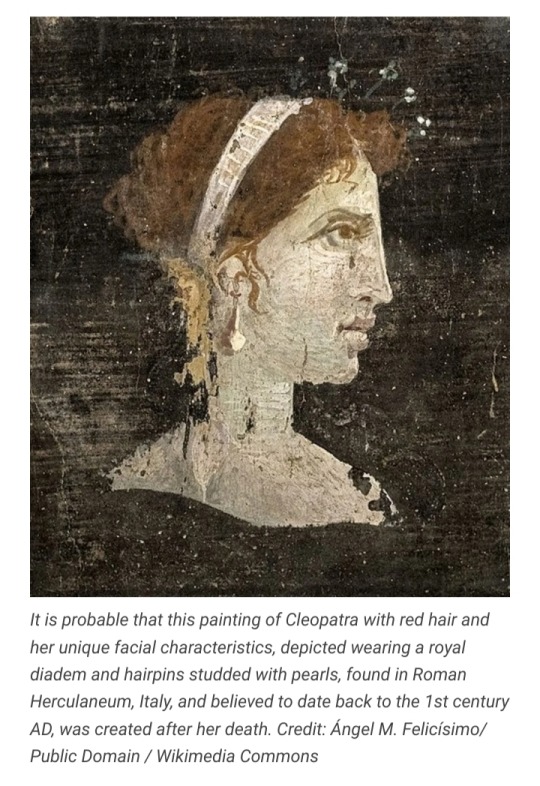
Plutarch (c.46 to c.119 AD) also briefly commented on the Ptolemaic queen’s appearance in his Life of Mark Anthony.
Contrary to Cassius Dio, Plutarch did not reckon Cleopatra’s beauty to be particularly noteworthy but instead praised her intelligence and character.
“Her beauty, so we are told, was not itself outstanding; it did not immediately strike those who saw her; yet being with her had an inescapable hold; when talking with her, she was persuasive, and the character which surrounded her whole manner in company had a force to it,” wrote the Greek historian and philosopher.
Hair and makeup
In the few surviving marble busts of Cleopatra, she is depicted wearing her hair tied at the back in a bun.
Historians like Paul Edmund Stanwick refer to this as a “melon hairstyle.”
Coinage depicting the queen shows her wearing the same hairstyle.
Depictions of Cleopatra with this hairstyle also show her wearing a diadem, a symbol of royal power adopted by many Hellenistic rulers who succeeded Alexander the Great as the masters of the divided fragments of his empire.

Professor Diana Kleiner of Yale University has identified two more hairstyles worn by Cleopatra.
One of these hairstyles emulated those worn by Macedonian queens, which is unsurprising given Cleopatra’s lineage.
To achieve this style, the hair was carefully divided into individual curls, which were typically swept away from the face and elegantly gathered into a bun positioned at the back.
According to Professor Keline, it may have been worn during travel.
The other hairstyle was “the usual Egyptian wigged headdress that had its origins in Pharaonic times.”
In this case, the main point of attention would have been the headdress rather than the hair itself, with a rearing cobra made of precious metal proudly displayed.
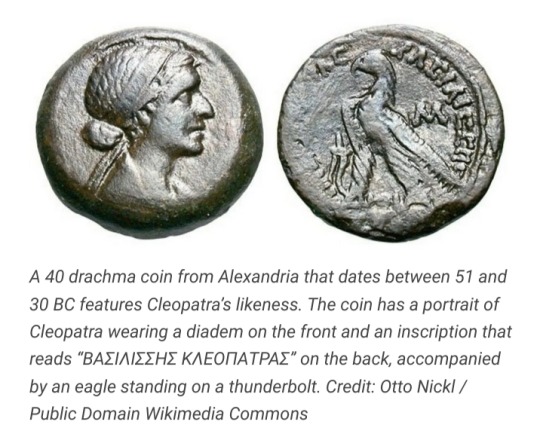
Professor Kleiner explains that “Cleopatra appears to have worn different coiffures in different circumstances, playing to her audience, so to speak, in life and in art.”
It would have been important for her to present herself in the Hellenistic fashion to the Greek elites who held the most senior positions in Ptolemaic Egypt, but also in traditional Egyptian fashions for her ruler to appear legitimate to a native Egyptian audience.
Regarding the Ptolemaic queen’s makeup choices, she would darken her eyebrows and enhance her eyeliner using black kohl, creating an elongated look.
The application of deep blue eyeshadow extended gracefully up to her brows, further accentuating her eyes.
Additionally, Cleopatra embraced the fashionable trend of adorning her hands with intricate henna patterns, a popular practice during that era in Alexandria.
Clothing
Cleopatra wore a variety of Greek, Egyptian, and Roman outfits intended to accentuate her beauty.
The selection of these styles would have been dependent on the contexts in which the queen appeared, as it was important for her to present herself accordingly to her friends, foes and subjects.
One of the styles she wore combined Greek and Egyptian aesthetic sensibilities and is seen depicted on sculptures of other Ptolemaic queens.
This style consisted of a sheer dress, likely of a semi-transparent material, which left the bare breasts exposed in a manner popular amongst native Egyptian women.
The depictions of other Ptolemaic queens wearing this style are consistent with the writings of the Roman poet Lucan, who claimed that she wore a transparent dress that exposed her breasts, likely made of Chinese silk.
Lucan also described the jewelry she wore, writing that “her baleful beauty inordinately painted, covered with Red Sea pearls, a fortune in her hair and around her neck, weighed down with jewelry.”
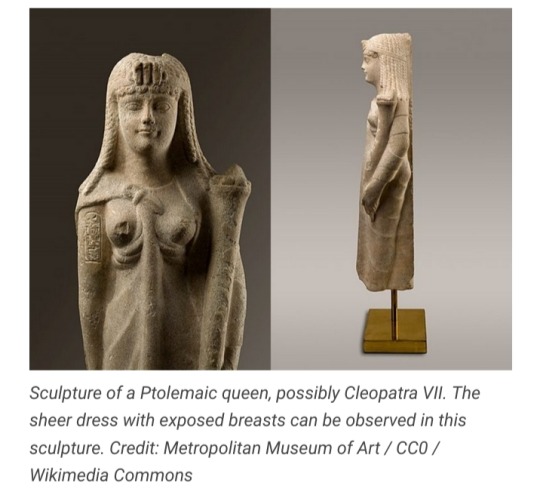
NOTE:
Cleopatra VII Thea Philopator (70/69 BC – 10 August 30 BC) was Queen of the Ptolemaic Kingdom of Egypt from 51 to 30 BC and its last active ruler.
A member of the Ptolemaic dynasty, she was a descendant of its founder, Ptolemy I Soter, a Macedonian Greek general and companion of Alexander the Great.
#Cleopatra VII Thea Philopator#Cleopatra#Queen of the Ptolemaic Kingdom of Egypt#Ptolemaic Dynasty#Ancient Egypt#Ptolemy I Soter#Ancient Macedonians#Julius Caesar#Mark Anthony#Cassius Dio#Plutarch#melon hairstyle#Egyptian fashion#Lucan#Ptolemaic Queen#Hellenistic fashion#Alexandria#Beauty Secrets of Cleopatra
41 notes
·
View notes
Text
Elagabalus being a possible likely descendant of Macedonian Greeks would make Nero jealous.
(They aren't just the commoner Macedonian Greeks but generals who rode with Alexander the Great, Ptolemy I Soter and Seleucus I Nicator)
@danikoshi
#looking at the syrian branch of the severan dynasty's possible likely ancestry is jawdropping#elagabalus#ancient rome#ancient greece#roman empire#ancient macedonians#and that's including the other ptolemies and the seleucids#yes elagabalus and the syrian branch of the severan dynasty are also possible descendants of cleopatra vii
6 notes
·
View notes
Text
Wouldn’t it be funny if the new Netflix Cleopatra documentary by Jada Pinkett Smith DID show Berenice usurping the throne from Ptolemy XII, DID show Arsinoe’s uprising and imprisonment, DID show that the Great Library was more of a university but kind of in decline, DID show that Caesar probably seduced her during the siege of the city in which they worked together closely, DID show Cleopatra lending a navy and running the most organized economy until the USSR and a cosmopolitan city with ethnic Egpytians, Greeks, and the biggest population of Jews outside Judea therefore making it the most historically accurate Cleopatra thing of all time even though the actor playing her does not look Macedonian?
#Netflix Cleopatra#Cleopatra 2023#Jada Pinkett Smith#cleopatra was macedonian#but if that's the only historical inaccuracy you care about ask yourself why#this is probably yet another sex fantasy about the Caesar Cleo Marc Antony love triangle in which case IT DOESN'T MATTER#a lot of people are saying let's see a doc about Hatshepsut or the Kush dynasty in which casting a black actor would make more sense#and yeah#10/10 would watch#but come on it would be funny#HA HA HA HA HA HA THIS IS THE MOST ACCURATE CLEO THING EVER HEE HEE HEE HEE#kind of like how the MTV 1990s Romeo + Juliet was the truest to the original version#which meant PEOPLE HAD TO WATCH IT AND SHOW IT IN HS CLASSESS HA HA AHA HA HEHEHEEE#original posts#racism
17 notes
·
View notes
Text
"cleopatra faced oppression" the fuck she did oh my god i hate y'all so much
#personal#i thought we couldn't get any stupider than 'cleopatra was culturally black' because like....no#because a) someone's idea of 'culturally black' varies from country to country#and b) what an american for instance would consider 'culturally black' is based on idea that's at max a hundred years old#but no cleopatra the literal queen descended from an incestuous colonizer dynasty ruling one of the richest countries on the mediterranean#did not 'face oppression' where was she facing oppression she OWNED SLAVES#the closest that woman ever came to facing oppression was like maybe the last week of her life when octavian was in alexandria#but even then not really???#and they're so clearly not talking about any gender discrimination that she dealt with because this whole thing#is a defense of that stupid 'no cleopatra was black actually we promise'#god i'm getting anti cleopatra pilled by ahistorical bullshit i'm gonna end up hating her before the year is out at this point#also can we please focus on like any other egyptian queens ever#why's it always cleopatra's macedonian ass in the spotlight egypt has thousands of years of history#and a good chunk of those thousands of years did actually have female primary rulers#who were ethnically egyptian to boot#like goddamn there's more to egypt than just the cleopatra show and a lot of it is much more interesting
10 notes
·
View notes
Text
Alexander the Great's Sister, Thessalonike, and the Mermaid Legend - GreekReporter.com
Alexander the Great's Sister, Thessalonike, and the Mermaid Legend. Look at this stuff, isn't it neat? (We'll show ourselves out!)
https://greekreporter.com/2023/11/24/alexander-the-great-sister-thessalonike-mermaid/
View On WordPress
#297 BC#323 BC#352 BC#Alexander the Great#Alexander V of Macedon#Antipater I#Argead Dynasty#Cassander#Cleopatra#Cynane#DIadochi#Epirus#Fountain of Immortality#Greece#King Philip II#Macedon#Macedonian#Mermaid#Molossian#Nicesipolis#Olympias#Persians#Philip IV of Macedon#Thesalonike#Thessalian#Thessaloniki
0 notes
Text
The Lost Queen - II
— summary: You woke up near a military camp without remembering how and why you got there, you didn’t understand why they were dressed like ancient Greeks, all you knew was that you weren’t safe and you needed to get out of that place as soon as possible. Too bad for you that you found yourself attracting unwanted attention from the Macedonian King and he won’t let you go so easily.
— genre: yandere, dark!au.
— warnings: time travel, obsessive and possessive behavior, murder, mention of torture, kidnapping, angst, fluffy (very rarely), dub-con, possibly smut.
— pairing: yandere!alexander the great x female!reader, yandere!generals x female!reader
— word count: +1,820.
— tag list: @devils-blackrose, @faerykingdom, @hadesnewpersephone, @mariaelizabeth21-blog1 , @kadu-5607
— the lost queen series masterlist.
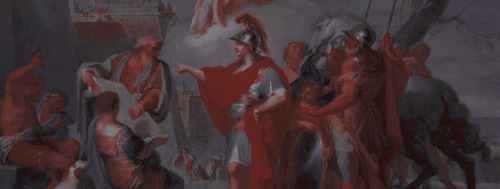

Chapter 2
You were afraid.
In fact, you felt mixed emotions. Fear, dread, horror, terror.
You didn't know why the hell you were in an old military camp, let alone why you were facing one of the greatest conquerors in history. Nothing that was happening made sense and your mind tried to look for logical answers, but it was in vain.
Because nothing that was in front of you was logical.
Maybe it was a really bizarre dream, maybe you were high or drunk, but you knew better. It was real and very real.
Nothing made sense and you felt like crying and going to your mother's lap for comfort but you couldn't do that. Not while you were being held by a scarred man and the others were staring at you with curiosity and... disdain? You couldn't tell.
How did you end up there? It was your first question. Your last memory was of you in your room, reading a book about the conqueror and falling asleep. Was that book cursed? No, that was not possible. But it will be? It seemed like the only acceptable option considering the fact that you were over 2,000 years in the past.
Fuck.
You took a deep breath, trying at all costs to avoid the urge to scream and cry. That wouldn't be acceptable to do now, you needed to stay calm and try to find a solution.
''Can you speak greek?'' You blinked in surprise when one of the men addressed you. It was the one who was next to Alexander. You glanced at him lightly, why he looked familiar?
''Hephaestion, I don't think she's fine or that she even understands what we're talking about.'' One of the slightly tall men spoke up. You shifted your gaze to him when you heard him say the name.
Hephaestion.
Oh, oh.
''It doesn't hurt to ask, Ptolemy.'' Another man said. You looked at him and blushed a little. He was handsome, maybe not by 21st century beauty standards, but he was attractive. Blonde hair and dark blue eyes.
And Ptolemy? Like in Ptolemy I Soter of the Ptolemaic Dynasty?
''She could be a spy sent by the persians. I mean, just look at the way she's dressed.'' The man with dark brown hair and green eyes said, looking you up and down with disdain.
You glared at him, daring him to say one more thing about your pajamas. Yes, it wasn't the kind of clothes they wore but it suited you it was comfortable and the print had kittens!
Adorable.
But the man held your gaze and you shuddered slightly as you noted their intensity.
''Look at the way she's dressed, friends. She clearly is a whore.'' One of the men said, looking at your breasts shamelessly.
If you weren't trapped in another man's arms, you would have kicked ass.
''Whore is my hand in your face if you say another word!'' The words came out before you could stop yourself and everyone looked at you in shock and you felt like slapping yourself.
You could have feigned madness, claimed amnesia or that you couldn't speak greek and, you really didn't, but apparently the ''magic'' that brought you to this place decided not to screw you around so much.
''She has spirit!'' The man holding you laughed and you glared at him.
Finally, Alexander decided to say something.
''Bring her to my tent. I want you all there.'' Were his only words and he turned his back on you without another word, with Hephaestion following, but not before giving you one last look.
You gasped as you began to be dragged towards what appeared to be the King's tent. Several people in the camp watched you curiously as you were led away and followed by the other generals.
You were so fucked up and not the way you liked it.

Alexander didn't know what to do with himself at that moment. He didn't understand what was going on and he hated it.
There were so many questions in the King's mind and none of them were answered. But the most puzzling of them was why he felt awkward around you.
Alexander felt an unknown feeling and what it attracted to you. How a stallion was attracted to a mare in heat. Not that he was thinking about sleeping with you, no, it wasn't that but he felt weird.
It was like he already knew you and that bothered him a lot. You had never seen each other, he was sure of that, but then why did he feel that way?
He needed answers and fast. He looked at his best friend who was looking at him with concern.
''Are you alright, Alexander?'' Hephaestion's soft and warm voice rang out and the friend touched his shoulder to try to calm him down.
''I'm fine, just tired.'' He lied quickly and something told him that Hephaestion didn't believe his words.
But there was no time for questions, not when the mystery woman was led into his tent, surrounded by the curious generals. Alexander frowned, but held the pose.
He looked right at her and his mind filled with disturbing thoughts.
She was the strangest woman he had ever met in his life. She was beautiful, albeit in a different way, but what really drew him to her was the fear in her eyes, the kind of genuine dread he had only ever seen in the eyes of his enemies. And the way she was dressed… He had never seen such clothes, even in Persia.
And that attracted him.
Alexander cleared his throat before asking the question that had been on her mind since he met her, ''Who are you and what are you doing in my camp?'' The King's voice was serious and authoritative and he could have sworn he saw her shudder.
The young woman opened her mouth to speak, but stopped and closed it again, avoiding Alexander's piercing gaze. It made him uncomfortable, but he could not and would not show weakness in front of anyone, let alone in front of his generals and a complete stranger.
He watched her for a few seconds and realized what made her sulk, the fact that she was still being held by Cleitus the Black.
''Let her go.'' It was a simple command but the general obeyed instantly. Alexander smiled a little when he noticed that the woman's posture visibly relaxed when she was released.
''I'll ask you one more time.'' Alexander said and moved a little closer to the woman, ''And I suggest you answer.''
She just stared at him as if she was seeing a god in front of her. Well, maybe he was a god.
''Who are you and what are you doing in my camp?''
''I'm (Y/N) and I don't know how I came to be in your camp.'' She finally said it in a low voice but he could hear it loud and clear.
Alexander was stunned. (Y/N)... A name he had never heard in his life and yet it seemed to suit this woman. And when he was finally able to hear her voice again, the King found himself wishing he could hear her speak more often. She was so strange yet so endearing and Alexander found himself wanting to know everything about her and he would.
He was the King, after all, and he always got what he wanted.
"It's an unusual name. What it means?''
She shrugged, ''I don't know. I never tried to find out.''
She was so insolent and disrespectful. Did she not know who she was talking to?
A laugh was heard and Alexander glared at Nearchus, who stopped laughing at the same moment.
''Where are you from?'' Alexander asked, looking at her curiously. He had decided that she wasn't a threat, she seemed too stupid to be a threat anyway.
She thought for a moment and smiled. Alexander felt his heart skip a beat when she smiled at him.
''Uh…I come from a very, it's... a distant place.'' She said between pauses.
Alexander scoffed. She was a terrible liar, and he felt like laughing when she looked insulted when he scoffed.
''And where is this place so far away?'' He insisted.
(Y/N) glared at him.
''As far away as you could tell.''
''The name?''
If she looked angry before, she looked furious now.
''You would not understand. It's not your language.''
''Really?'' Alexander thought, ''And how come you speak my language so well?''
She paled, but recovered very quickly.
''I studied.''
Alexander hummed and decided to stop questioning her. For now. She looked tired and scared, from what he could read from her body language and something inside him told him not to disturb her anymore.
''Call the servants. Give her a tent, clothes and food.''
All of her generals looked perplexed, even Hephaestion.
Even the woman, (Y/N), looked confused.
In fact, he didn't even know why he was doing this, but he needed to make sure she was going to be alright.
It was a need that screamed inside him. The need to protect her and he didn't know why.
He needed to find out about her. Who was she, where did she come from, everything.

You were taken to a tent away from the camp and left alone.
You looked around curiously. It was a small tent but it had a small bed, which you recognized as a cot, and some candles. It was just that.
You wondered if you could freak out now, but it wasn't feasible. No, everyone could hear it and it would get you in more trouble than you already were.
Fuck, fuck, fuck.
You started to feel the tears in your eyes. You wanted to cry and scream and cry some more. But you couldn't. Not when you were in such a vulnerable position and you were scared.
So scared.
You were scared of everything. Fear of being tortured, dying and being abused. You noticed some soldiers looking at you with lust and it scared you so much. What would stop them from making you a booty? A toy?
Nothing.
And it was so desperate.
You sat down on the small cot and finally allowed yourself to cry, the hot tears running down your face, as you sobbed and contained your screams of frustration.
You didn't even notice the servant entering your tent and placing a plate of food beside you or the clothes that were brought for you. You didn't notice because you were so desperate and you were sinking in your fear and despair.
You needed to go. You needed to go back to the 21st century.
And you had no idea how to do it.
And just that thought made you cry even harder.

— lady l: I was going to post it tomorrow but I got some time and I didn't want to keep you waiting any longer so finally chapter 2 is here. I hope you enjoyed it, what did you think of Y/n's first interaction with Alexander and some generals? Feel free to give me your opinion. I love you all and until the next chapter!! ❤️
#history#yandere history#yandere historical characters#yandere alexander the great#yandere alexander the great x reader#alexander the great x reader#long fic#the lost queen
413 notes
·
View notes
Note
I know you don't usually do these kinds of posts, but you're probably one of the most implicated in black history month people that I follow so I wanted to ask you, as I already value your opinions in Acotar, what do you think of the documentary where actual historians claim Cleopatra was a black woman? Lately, this has been a pretty active topic on my fyp on TikTok, and I wanted to know a black woman's perspective on this.
Thank you in advance, and if you usually don't answer these questions or don't want to answer this one, I'll totally understand, and there's no problem at all.
I didn’t know there was a new documentary out, but when I saw the name Cleopatra I automatically sighed because I knew what was coming. This is a subject a know a little 🤏🏾 about, actually, because I researched it a bit myself in my last year of high school (and stopped because of the uh. NASTINESS associated with this particular subject) and though it’s been a few years I remembered some main, basic things, and I wanted to check a few things first.
At best, in the most CHARITABLE interpretation as far as I in my limited knowledge can tell, it would be correct to say that’s it’s POSSIBLE that she MAY have been mixed Black because, though she was part of the GREEK Ptolemaic dynasty that ruled Egypt (Ptolemy being one of Alexander the Great’s generals who got the Egyptian portion of his empire after Alexander died), that’s on her fathers side; her mother’s exact ethnicity isn’t known. Not that this won’t stop the hoteps from running off and claiming her and all of ancient Egypt as Black though So some have ***speculated*** that her mother—and thus Cleopatra—may have potentially been part Egyptian (and that goes into the issue of deciding that the “Egyptian” in this instance had to have been Black rather than MENA but that’s again a whole other can of worms). BUT it’s more likely that her mother was Greek due to the uh, PRACTICE™️ of inbreeding and it not being common for the dynasty to marry Egyptians. So it’s more probable that she was fully Greek/Macedonian and not part Egyptian, much less part Black. (Also some historians speculate she may have had Persian blood? I guess? Again it’s a can of worms, not something i’m digging deep into because of the nastiness that you often stumble across) Unless there’s a new study confirming her mother’s identity or something that I missed, it’s simply incorrect to claim that Cleopatra was undeniably Black, because though it is ***possible*** she most likely ***wasn’t.***
But this topic really upsets me, because there are LEGITIMATE Black kingdoms and empires who were mighty and well developed and powerful like the Aksumite empire and kingdoms of Kongo and Loango and the Great Zimbabwe empire and the empires of Ghana and Mali and Songhay and the Ashanti kingdom and the WHOLE SWAHILI COAST THAT WAS INVOLVED IN THE INDIAN OCEAN TRADE ROUTE and they had their own great rulers, their own kings and queens and emperors and empresses, their palaces and castles, their own cities and towns, their own complex civilizations and dynastic royal families that deserve the attention Cleopatra and ancient Egypt get. They were erased—and Egypt was not—by white people to prop themselves up as the only race capable of forming civilizations and advanced societies as a means of justifying colonization and imperialism to “civilize” the rest of the world and as a result many of those other empires have been erased from our education system here in the states and many people cling to ancient Egypt as proof that we’re not inferior and aren’t savages like white people claim due to believing that since Egypt’s in Africa it had to have been mostly Black when Egypt, and the Ptolemaic dynasty and Cleopatra in PARTICULAR, are literally the worst example that could’ve been chosen and were the only African kingdom spared erasure FOR A REASON.
Anyway, I don’t like it, it’s disingenuous and does US wrong because we need to give that energy to other African kingdoms that need and could use the fame Egypt + Cleopatra get, and we deserve a better education system to teach us this stuff. I hope this answers your question? And I don’t mind any kinds of asks 🥰
#I get the desire to claim Egypt because I remember in high school a racist white guy asked why Africans didn’t build their own civilizations#And that’s what sent me researching in the first place so I truly get the frustration but black women we can do BETTER#ask#anon#cleopatra#egypt#africa#racism#Don’t come at me in my inbox yall#antiblackness
1K notes
·
View notes
Text
AI is deciphering a 2,000-year-old 'lost book' describing life after Alexander the Great

A 2,000-year-old "lost book" discussing the dynasties that succeeded Alexander the Great may finally be deciphered nearly two millennia after the text was partially destroyed in the eruption of Mount Vesuvius in A.D. 79 and, centuries later, handed off to Napoleon Bonaparte.
The reason for the breakthrough? Researchers are using machine learning, a branch of artificial intelligence, to discern the faint ink on the rolled-up papyrus scroll.
"It's probably a lost work," Richard Janko, the Gerald F. Else distinguished university professor of classical studies at the University of Michigan, said during a presentation at the joint annual meeting of the Archaeological Institute of America and the Society for Classical Studies, held in New Orleans last month. The research is not yet published in a peer-reviewed journal.
Only small parts of the heavily damaged text can be read right now. "It contains the names of a number of Macedonian dynasts and generals of Alexander," Janko said, noting that it also includes "several mentions of Alexander himself." Read more.
410 notes
·
View notes
Photo
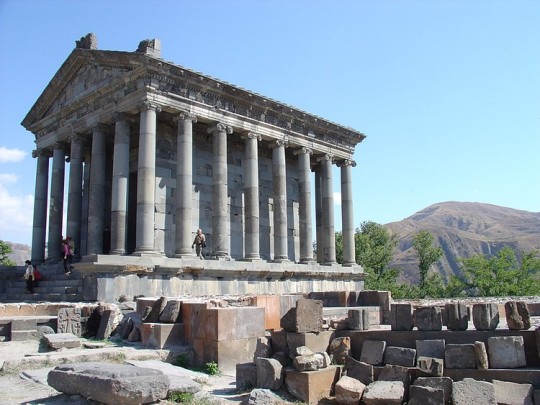
Ancient Armenia
Ancient Armenia, located in the south Caucasus area of Eurasia, was settled in the Neolithic era but its first recorded state proper was the kingdom of Urartu from the 9th century BCE. Incorporated into the Persian Empire of Cyrus the Great in the 6th century BCE, the Orontid dynasty ruled as Persian satraps, a function they performed for their next overlords the Macedonians and Seleucid Empire into the 3rd century BCE. Under the Artaxiad and Arsacid dynasties the country flourished but was often caught between the ambitions of Parthia and Rome, and then the Sasanian and Byzantine Empires. The boundaries of the state varied considerably over the centuries but such common factors as religion and language were united by long-lasting dynastic clans, which gave Armenia its own unique identity throughout antiquity.
Hayasa-Azzi (1500-1200 BCE)
The first identifiable culture in the region is the Hayasa-Azzi, an indigenous tribal confederation which flourished on the fertile plateau of ancient Armenia around Mount Ararat and parts of modern-day eastern Turkey between c. 1500 and c. 1200 BCE. The Hayasa-Azzi are the eponym of the Hay people, the term Armenians use to describe themselves and their state, Hayastan. Over time, the Hayasa-Azzi mixed with other ethnic groups and local tribes such as the Hurrians, Arme-Shupria, and Nairi, probably motivated by the need for defence against more aggressive and powerful neighbours like the Hittites and the Assyrians. They were probably infiltrated by the Thraco-Phrygians following the collapse of the Hittite Empire c. 1200 BCE. Eventually, these various peoples and kingdoms would be fused into the region's first recognisable and recorded state, the kingdom of Urartu from the 9th century BCE.
Continue reading...
46 notes
·
View notes
Text
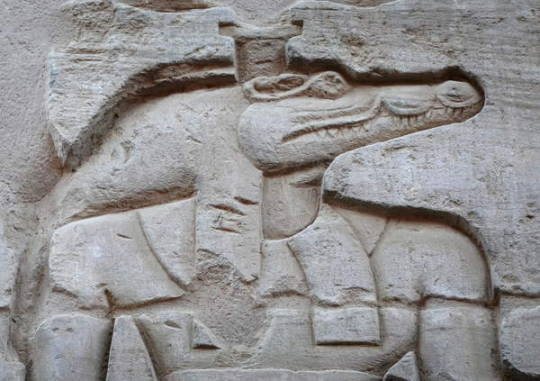
Relief of Sobek
Detail of a bas relief depicting the crocodile headed god Sobek at Temple of Kom Ombo. One of the most prominent deities associated with crocodiles was Sobek, he was worshipped as a protective deity, particularly in areas where crocodiles were prevalent.
During the Ptolemaic Period in ancient Egypt, the worship of Sobek continued, although there were some changes in religious practices and beliefs. The Ptolemaic Dynasty, which ruled Egypt from 305 BC to 30 BC, was of Greek Macedonian origin and brought their own religious traditions and deities to Egypt. However, they also adopted and incorporated many aspects of Egyptian religion, including the worship of Sobek.
Crocodiles held significant cultural and religious importance in ancient Egypt. They were associated with the Nile River, which was a vital source of life and fertility for the Egyptians. Crocodiles were seen as powerful and dangerous creatures, and their behavior and characteristics were often attributed to various deities.
Read more
78 notes
·
View notes
Text
I've been asked to weigh in.
So.
No, Cleopatra wasn't black. She wasn't even African. Her family was Macedonian Greek, and they were infamously the most incestuous family in Egyptian history. No African DNA got in there. People who saw her while she was alive described her as having, "honey skin." She wasn't Elizabeth Taylor white, but she also wasn't what we'd call black.
That being said, there are PLENTY of Black figures in Egypt. The further back you go in Egyptian history, the less amount of trade routes with other nations, the more African they were. That means that the pyramid builders like Khufu, Khafre, and Menkaure were all likely black. Hatshepsut, the first woman to rule in her own right who established highly successful trade routes with Punt, was likely black. Tutankhamun's grandmother Tiye has always been depicted with dark skin. Queen Ahmose Nefertari was depicted as this:
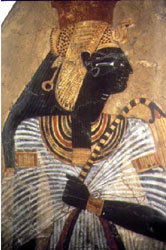
Then there's the entire Kushite Dynasty from Sudan who were black. This was a non-issue for Egypt. The biggest issue was if you worshipped their gods and respected their ways. If you did, then you were in. Alexander the Great was received like a hero because of this while the Persians were hated because of their disrespect for Egyptian culture.
3. Egypt even had what historians considered to be Asian rulers. The Hyksos invaders who ruled Egypt were from West Asia and some historians have posited that they were from the Indian subcontinent. (This has not been confirmed.)
Egypt was a melting pot with people from all over because of the lucrative trade routes. They were ruled by Greeks, Romans, Persians, Assyrians, Kushites, Hyksos, Libyans, etc. They had a blended culture.
So, it is interesting to me that this documentary chose a woman who was very clearly documented to NOT be black when Egypt has no shortage of Black figures to choose from. You'd think you'd want to tie yourself to the great legacies like Hatshepsut who made Egypt wealthy and stable over Cleopatra who lost Egypt its independence.
4. The one thing I CAN say for certain is that the actual Egyptians were NOT white. When I hear conspiracy theories that Ramses II was white from Scotland because he had red hair, it makes me so angry. They were not. Great things can and did come for non-white nations. Writing, language, government, medicine, etc ALL came from non-white nations. Egyptians referred to the Celts as Barbarians for a reason. Cleopatra, while she ruled Egypt, was NOT Egyptian. And that always gets forgotten. She hailed from a conquerer's line, not Egypt itself.
The thing about Egypt was they realistically depicted skin-color in Egyptian art. Maybe one day we'll find something of Cleopatra that will put this to rest. All we know is that her coinage shows her with distinctive European features, like a long, narrow, hooked nose. She has her hair in the Greek style.
340 notes
·
View notes
Photo
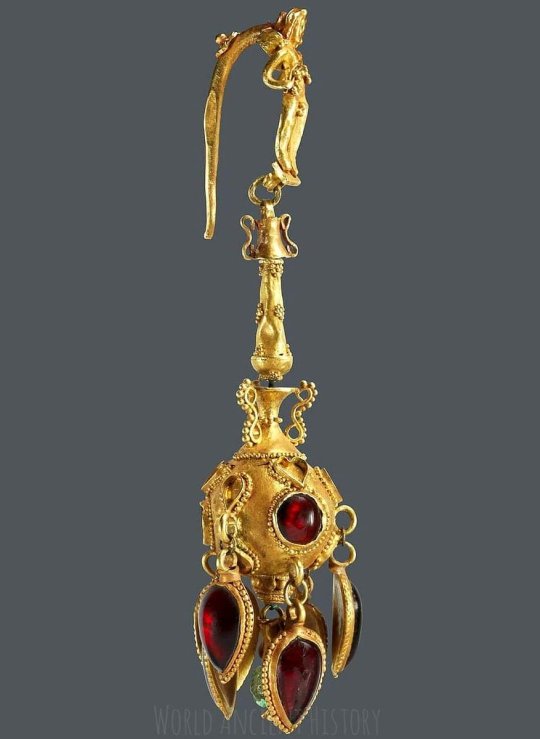
Greek Gold Earring (305-224 BC), from Mesopotamia; belonged to Seleucid Empire. A winged, naked Eros stands upon a kantharos cup (wine/offerings cup) which sits over an alabastron vase (container used for perfume and oils). Below, the earring ends in the shape of an Amphora vase (Pithos - storage vase), decorated with Garnets.
Seleucid Empire (Kingdom, as it is referred to in Hellenic) was a Greek power in West Asia during the Hellenistic period. Founded in 312 BC by the Macedonian general Seleucus I Nicator, it began after the division of the Macedonian Empire of Alexander the Great, and ruled by the Seleucid dynasty until its annexation by the Roman Republic under Pompey in 63 BC.
(H: 8.3cm) Louvre Museum
34 notes
·
View notes